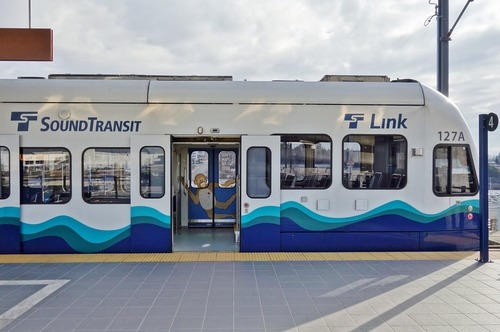
The U.S. Department of Transportation (DOT) announced Friday it had provided a packages of loans worth up to $3.84 billion to the Central Puget Sound Regional Transit Authority (Sound Transit) for six projects in Washington State.
The Transportation Infrastructure Finance and Innovation Act (TIFIA) loan would finance the Downtown Redmond Link Extension, as well as five other projects, and are estimated to save the Sound Transit more than $630 million over the life of the loans.
“These loans are a sign of this Administration’s commitment to public transit, jobs and addressing climate change.” U.S. Transportation Deputy Secretary Polly Trottenberg, at the announcement in Washington state in August, said. “As excited as we are about these projects, we also know that there is so much more to do across the country — and the Bipartisan Infrastructure Deal will allow us to deliver on that.”
The TIFIA loans will replace the current loan for the Sound Transit Northgate Link Light Rail Extension scheduled to open this fall. The 4.3-mile long light rail extension project includes three new stations from the University of Washington north to Northgate. The loans will also finance the Downtown Redmond Link Light Rail Extension already under construction, and will refinance the East Link, Lynwood Link and Federal Way Link extensions. Two other projects, the Operations and Management Facility East projects were also refinanced through the new TIFIA loans.
“Refinancing our earlier TIFIA loans will create more than $630 million in savings for our region’s taxpayers, helping us deliver the largest transit infrastructure program in the country as quickly as we can. Expanding the program to include the Downtown Redmond Link Extension expands our savings still further,” Sound Transit CEO Peter Rogoff said. “With our population growing and our planet warming, the stakes are high, and we are creating truly impactful benefits. We thank Secretary Buttigieg, the Build America Bureau, and our congressional delegation for their dedicated leadership toward making our transit expansions possible.”
In addition to creating tens of thousands of jobs, Sound Transit said the projects will reduce congestion and greenhouse gas emissions, expand routes, provide more reliable service and increase ridership capacity.